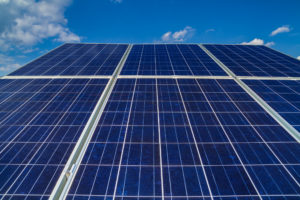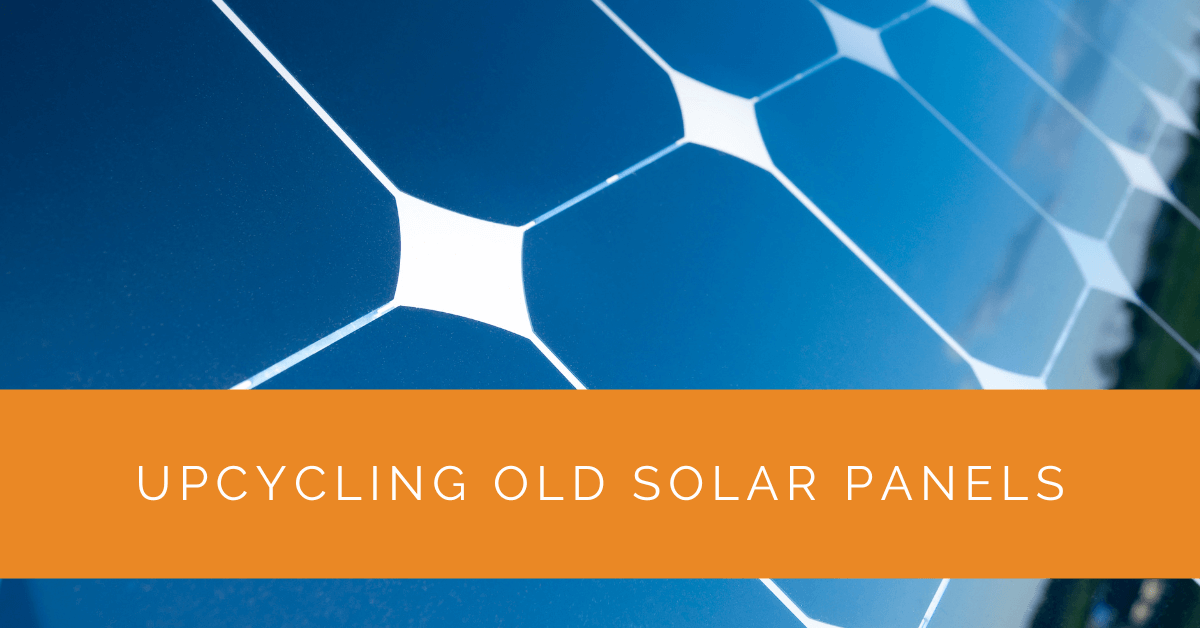As solar panels continue to gain popularity as a renewable energy solution, the issue of managing end-of-life solar panels becomes increasingly important. Rather than letting these panels end up in landfills, alternative approaches exist. In this article, we will explore the process of recycling and upcycling old solar panels, highlighting the environmental benefits and creative possibilities they offer.
Contents
- 1 Key Takeaways
- 2 Understanding the Lifecycle of Solar Panels
- 3 The Importance of Solar Panel Recycling and Upcycling
- 4 The Challenges and Opportunities in Solar Panel Recycling
- 5 How to Recycle and Upcycle Your Old Solar Panels
- 6 Case Study: Transforming End-of-Life Solar Panels Into Sustainable Solutions
- 7 Expert Insights From Our Solar Panel Installers About Upcycling Old Solar Panels
- 8 Experience Solar Excellence with Us!
- 9 Conclusion: Embracing Sustainability Through Solar Panel Recycling and Upcycling
Key Takeaways
- Recycling and upcycling old solar panels play a crucial role in minimizing waste and maximizing the environmental benefits of solar technology.
- Recycling involves collecting, disassembling, and recovering valuable materials such as silicon and glass, while upcycling offers creative opportunities to repurpose old panels for alternative energy solutions and innovative projects.
- Despite the challenges, advancements in recycling technologies, industry collaborations, and extended producer responsibility initiatives are driving the development of a sustainable solar panel recycling infrastructure. By responsibly managing end-of-life solar panels, we contribute to a circular economy and a greener future.
Understanding the Lifecycle of Solar Panels
Understanding the significance of recycling and upcycling old solar panels is crucial to understand their lifecycle. Solar panels typically have a lifespan of 25 to 30 years. During their operational years, they harness solar energy and convert it into electricity through the photovoltaic effect. However, like any technology, solar panels eventually end their usable life.
The Importance of Solar Panel Recycling and Upcycling
Exploring the Recycling Process for Solar Panels
Recycling old solar panels is essential for several reasons. One key aspect is recovering valuable materials such as silicon, glass, and metals. The recycling process generally involves the following steps:
Step 1: Collection and Transportation of End-of-Life Solar Panels
Efficient collection and transportation systems are necessary to dispose of end-of-life solar panels properly. This step involves establishing recycling centers or partnering with existing facilities to securely gather and transport the panels.
Step 2: Panel Disassembly and Separation of Components
The solar panels are disassembled in this stage, separating the different components. The glass and metal frames are separated from the cells and other internal parts. This step is crucial for effectively recycling and recovering valuable materials.
Step 3: Material Recovery and Recycling
Once the components are separated, the materials can be recycled and processed separately. Silicon wafers can be reclaimed, processed, and reused to produce new solar cells. Glass can be melted down and repurposed, and metals can be extracted for various applications.
The Benefits of Upcycling Old Solar Panels
Beyond recycling, upcycling offers a creative approach to repurposing old solar panels. Instead of treating them as waste, upcycling can give these panels new life and functionality. Some benefits of upcycling old solar panels include:
Repurposing Solar Panels for Alternative Energy Solutions
Upcycled solar panels can be utilized for off-grid applications or in remote areas with limited access to traditional electricity. They can power small devices, garden lights, or even portable electronics charging stations. By repurposing old panels, we extend their lifespan and reduce the demand for new ones.
Creative Applications of Upcycled Solar Panels
Upcycled solar panels can inspire innovative projects. They can be transformed into unique art installations, used in architectural designs, or integrated into sustainable furniture. The versatility of solar panels opens up endless possibilities for creative individuals to incorporate them into their designs and creations.

The Challenges and Opportunities in Solar Panel Recycling
While solar panel recycling presents significant environmental benefits, challenges exist. One of the primary challenges is the lack of standardized recycling processes and infrastructure. Additionally, as the volume of end-of-life solar panels increases, ensuring the availability of sufficient recycling centers is crucial. However, these challenges also present opportunities for innovation and advancement in solar panel recycling.
Current State of Panel Recycling in the US
In the United States, solar panel recycling is still a developing industry. However, efforts are being made to establish proper recycling facilities and processes. Various organizations and initiatives are working towards creating a sustainable and efficient solar panel recycling infrastructure.
Innovations and Initiatives in Solar Panel Recycling
Innovative solutions are emerging to address the challenges of solar panel recycling and maximize its environmental benefits. Some notable innovations include:
- Improved recycling technologies: Researchers and industry experts continually develop advanced techniques for separating and recovering materials from solar panels. These advancements enhance the efficiency of the recycling process and increase the yield of valuable materials.
- Collaboration and industry partnerships: Stakeholders in the solar industry, including manufacturers, installers, and recyclers, are collaborating to establish cohesive recycling networks. These partnerships facilitate the proper collection, transportation, and recycling of end-of-life solar panels.
- Extended producer responsibility: Many countries and regions are implementing extended producer responsibility (EPR) regulations for solar panels. EPR places the responsibility on manufacturers to manage the end-of-life stage of their products, including proper recycling or disposal. This approach encourages manufacturers to design panels with recyclability in mind.

How to Recycle and Upcycle Your Old Solar Panels
As a responsible solar panel owner, you can recycle and upcycle your old panels when they end their lifespan. Here are some steps to consider:
Finding Certified Recycling Centers
Look for certified recycling centers or organizations specializing in solar panel recycling. These facilities have the expertise and infrastructure to dispose of and recover valuable materials properly. Contact local recycling centers or solar panel manufacturers for guidance on recycling options in your area.
Exploring Upcycling Opportunities for DIY Enthusiasts
If you’re interested in upcycling your old solar panels, DIY projects have numerous possibilities. Consider repurposing the panels for off-grid applications, such as powering garden lights or charging stations. Get creative and explore ideas that align with your interests and skills.
Case Study: Transforming End-of-Life Solar Panels Into Sustainable Solutions
Background
At Solar Panels Network USA, we are committed to promoting sustainable energy solutions. As the lifespan of solar panels reaches its end, we face the challenge of managing these panels responsibly. This case study focuses on our initiative to recycle and upcycle old solar panels, demonstrating our commitment to environmental stewardship and innovation.
Project Overview
The project aimed to develop a comprehensive approach to handling end-of-life solar panels by exploring recycling and upcycling options. We partnered with certified recycling centers and engaged our team in creative upcycling projects to find new uses for these panels.
Implementation
Establishing Recycling Partnerships
Identifying Certified Recycling Centers
We began by identifying and partnering with certified recycling centers specializing in solar panel disposal. These centers were equipped with the necessary technology and processes to disassemble and recycle the panels efficiently.
Setting Up Collection Points
To facilitate the recycling process, we established collection points at our installation sites and partnered with local waste management facilities. This made it convenient for customers to dispose of their old panels responsibly.
Creative Upcycling Initiatives
DIY Upcycling Projects
Our team of solar installers embarked on several DIY upcycling projects. We transformed old solar panels into functional art pieces, garden lights, and portable charging stations. These projects not only extended the life of the panels but also showcased their versatility and creative potential.
Community Workshops
We organized workshops to educate the community about the benefits of upcycling solar panels. Participants learned how to create their solar-powered projects, fostering a culture of sustainability and innovation.
Promoting Extended Producer Responsibility
Collaborating with Manufacturers
We collaborated with solar panel manufacturers to promote extended producer responsibility. By designing panels with recyclability in mind and taking part in take-back programs, manufacturers can play a significant role in sustainable end-of-life management.
Advocating for Policy Support
We advocated for policies that support solar panel recycling and upcycling initiatives. By engaging with policymakers, we aimed to create a regulatory environment that encourages sustainable practices in the solar industry.
Results
Effective Recycling and Material Recovery
Our partnership with certified recycling centers resulted in the effective recycling of a significant number of old solar panels. Valuable materials such as silicon, glass, and metals were recovered and reintroduced into the production cycle, reducing the need for new raw materials.
Innovative Upcycling Projects
The DIY upcycling projects led to the creation of various innovative products, demonstrating the potential of old solar panels beyond their primary use. These projects received positive feedback from the community and inspired others to consider upcycling.
Increased Community Engagement
The workshops and community outreach efforts increased awareness about the importance of recycling and upcycling solar panels. Participants left with practical skills and a greater appreciation for sustainable practices.
Industry Collaboration and Policy Support
Our collaboration with manufacturers and policymakers helped promote extended producer responsibility and support for recycling initiatives. These efforts contributed to the development of a more sustainable solar industry infrastructure.
Summary
The project to recycle and upcycle old solar panels at Solar Panels Network USA has been a success, showcasing our commitment to environmental sustainability and innovation. By establishing partnerships with certified recycling centers and engaging in creative upcycling projects, we effectively managed end-of-life solar panels while promoting sustainable practices within the community.
Recycling allowed us to recover valuable materials, while upcycling opened new possibilities for repurposing solar panels. Our advocacy for extended producer responsibility and supportive policies further reinforced our commitment to a greener future.
Through these efforts, we have demonstrated that end-of-life solar panels can be transformed into valuable resources, contributing to a circular economy and inspiring others to adopt sustainable practices. At Solar Panels Network USA, we continue to lead by example, ensuring that solar energy remains a sustainable and innovative solution for generations to come.
Expert Insights From Our Solar Panel Installers About Upcycling Old Solar Panels
Recycling and upcycling old solar panels are not just environmentally responsible; they also unlock creative and practical opportunities. By repurposing these panels, we can continue to benefit from their energy potential long after their primary use.
Lead Solar Engineer
One of the most rewarding aspects of upcycling solar panels is seeing how they can be transformed into unique projects that still harness solar energy. It’s a great way to promote sustainability and innovation simultaneously.
Senior Solar Installer
Properly handling the end-of-life phase of solar panels is crucial for sustainability. Whether through recycling or upcycling, we can significantly reduce waste and recover valuable materials, contributing to a greener future.
Solar Installation Expert
Experience Solar Excellence with Us!
Trust in Solar Panels Network USA, where our seasoned experts deliver top-quality solar solutions for homes and businesses nationwide. With a legacy of countless successful installations and a commitment to sustainable energy, we’re your reliable partner in the solar journey. Ready for a brighter, eco-friendly future? Call us now at (855) 427-0058 and harness the power of the sun!
Conclusion: Embracing Sustainability Through Solar Panel Recycling and Upcycling
Recycling and upcycling old solar panels are essential steps toward a sustainable future. By diverting end-of-life panels from landfills, we reduce waste and recover valuable materials for reuse. Upcycling offers exciting opportunities to breathe new life into these panels and unleash their creative potential. As the solar industry continues to grow, let us embrace responsible practices that ensure solar energy’s longevity and environmental benefits.
By recycling or upcycling your old solar panels, you contribute to the circular economy, reduce the demand for new materials, and inspire others to adopt sustainable practices. Together, we can significantly impact the planet while harnessing the power of renewable energy.
Remember, when it’s time to bid farewell to your old solar panels, choose the path of recycling or upcycling. Let’s turn end-of-life solar technology into a force for positive change and a symbol of our commitment to a greener and more sustainable world.
About the Author
Solar Panels Network USA stands at the forefront of solar energy solutions, driven by a team of seasoned solar engineers and energy consultants. With over decades of experience in delivering high-quality solar installations and maintenance, we are committed to promoting sustainable energy through customer-centric, tailored solutions. Our articles reflect this commitment, crafted collaboratively by experts to provide accurate, up-to-date insights into solar technology, ensuring our readers are well-informed and empowered in their solar energy decisions.

